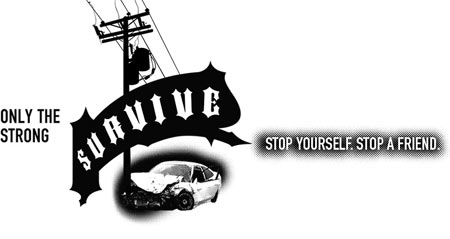
Resources
Short and Long Term Effects
Alcohol affects you in the short term, in the long term, and while driving.
Alcohol and Driving
Alcohol is a depressant that affects your vision, coordination, reaction time, multitasking ability, judgment, and decision-making. How can you drive safely if you can�t see, think, and move around well and react quickly? Alcohol affects your ability to identify dangerous situations and make good decisions when you know danger is ahead, and it slows your reaction time even if you do make a good decision. In addition, having alcohol in the body while you�re driving messes up your distance and speed perception, making you see things farther or closer than they really are, or makes you feel like you�re driving the speed limit when you�re really speeding.
You need quick decision-making, reflexes, accurate perception, and multitasking skills to drive well and safely. Even one drink can make you an unsafe driver. And remember, driving with any alcohol in your bloodstream or in your car is illegal if you�re under the age of 21.
Overall Effects of Alcohol
Short-term effects
In low doses, alcohol produces:
- A relaxing effect
- Reduced tension
- Lowered inhibitions
- Poor concentration
- Slow reflexes
- Slow reaction time
- Reduced coordination
- Slower brain activity
- Sensations and perceptions that are less clear
In medium doses, alcohol produces:
- Slurred speech
- Sleepiness
- Altered emotions
- Poor vision
- Sleepiness and disruption of sleeping patterns
- Increased urine production
- More blood flow to skin surface
- Lower core body temperature
In high doses, alcohol produces:
- Vomiting
- Uncontrolled urination
- Uncontrolled defecation
- Breathing difficulties
- Passing out
- Alcohol poisoning
- Coma
- Possible death
Long-term effects of alcohol
- Disrupts normal brain development;
- Liver damage and cirrhosis of the liver;
- Brain cells die, decreasing brain mass;
- Stomach and intestinal ulcers and destroyed organs;
- Blood pressure increases, causing heart disease, heart attack, or stroke;
- Male sperm production decreases;
- Lower levels of iron and vitamin B, causing anemia;
- Alcoholism;
- Death; and
- Fetal alcohol syndrome in unborn children.


